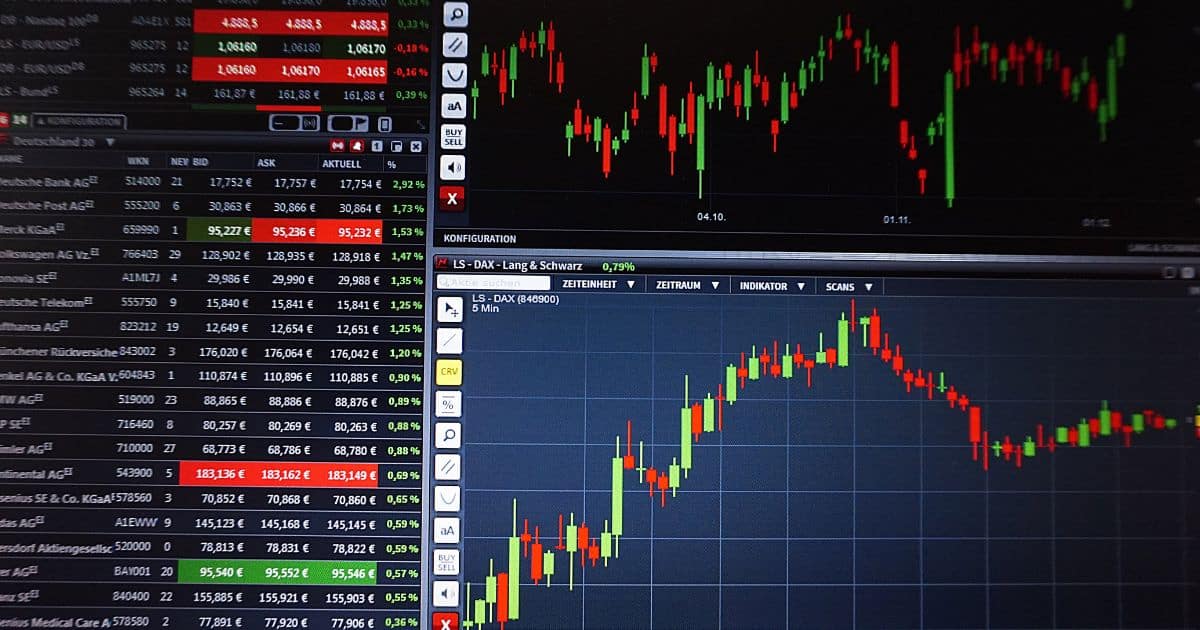Trading platforms are key to trading in the modern day – and the good news is that they’re becoming more sophisticated as time goes on.
Not only do they make trading more accessible, but they also allow you to trial different strategies, navigate a diverse set of trades, and refine your approach over time.
However, it’s important to consider a few factors when deciding on which platform to choose. Here’s what you need to know.

What is a trading platform?
A trading platform is essentially an online system that allows you to trade digitally using computer software. Everything is based on a network, so you’ll need an internet connection to use them. Think of it as a digital marketplace that allows traders to execute trades and use other functions to enhance the trading experience.
Often, these functions include demos, chart history and learning resources. For example, reputable trading platforms like Tradu have user-friendly optimised charting and over 10,000 tradeable assets.
Types of trading platforms
There are two types of trading platforms to choose from.
- Prop trading platforms: These tend to be designed by big brokerage businesses. They reflect the typical trading style of electronic brokerage models, giving you a taste of this side of traditional trading.
- Commercial trading platforms: These target retail investors and day traders. They tend to be simpler to navigate, making trading more accessible. You often get additional features such as news updates on a feed and chart history to rifle through. They’re great for those wanting to get a feel for trading and tap into extra resources.
When choosing a platform, you should consider the features you’d like access to, as well as any fees that may be required. It’s understandable to want to choose lower fees to maximise potential profits – you just need to weigh up whether you would prefer the additional resources this can offer. Like when deciding on any product, take the time to check reviews and testimonials about the platforms in question.
Some trading platforms may even require traders to meet certain eligibility to be able to use them, such as a minimum amount in equity.
Account Characteristics
When assessing a platform’s reputability, look out for key regulations and consider the fact that regulatory bodies will be different from country to country. Even if a platform looks great, it might not have the accreditations to back up its authority.
In terms of account features, there are some things to look out for. Some trading platforms offer leverage, which can allow traders to essentially use debt or borrowed funds to maximise their returns from an investment. However, while potential profits can be magnified, so too can potential losses. If you’re an experienced trader looking for this feature, you should consider it in your search for the right platform.
Think about commissions and spreads too. Sometimes, a broker won’t charge a commission and will make their money using wider spreads. If a broker doesn’t take a commission, they may specify a percentage of the spread. This is the difference between the bid and the ask of a forex pair. A wider spread usually means it’s a little trickier to make a profit, so bear this in mind. Having an understanding of how the broker in question is making money can be helpful in making your decision.
Another important factor is the process of withdrawing funds. Platforms will outline individual withdrawal policies – the same goes for funding. Some platforms will let you use a credit card or third-party bodies such as PayPal.
What currencies can you trade?
A good trading platform will allow you to trade a range of currencies, which helps with the prospect of diversification. This is a must for successful trading with lower risk. Some platforms will focus solely on forex trading, offering certain currency pairs. Make sure they offer the currency pairs that appeal to you, whether these are major, minor or exotic pairs. Others will go beyond forex and allow you to trade crypto, stocks and more.
